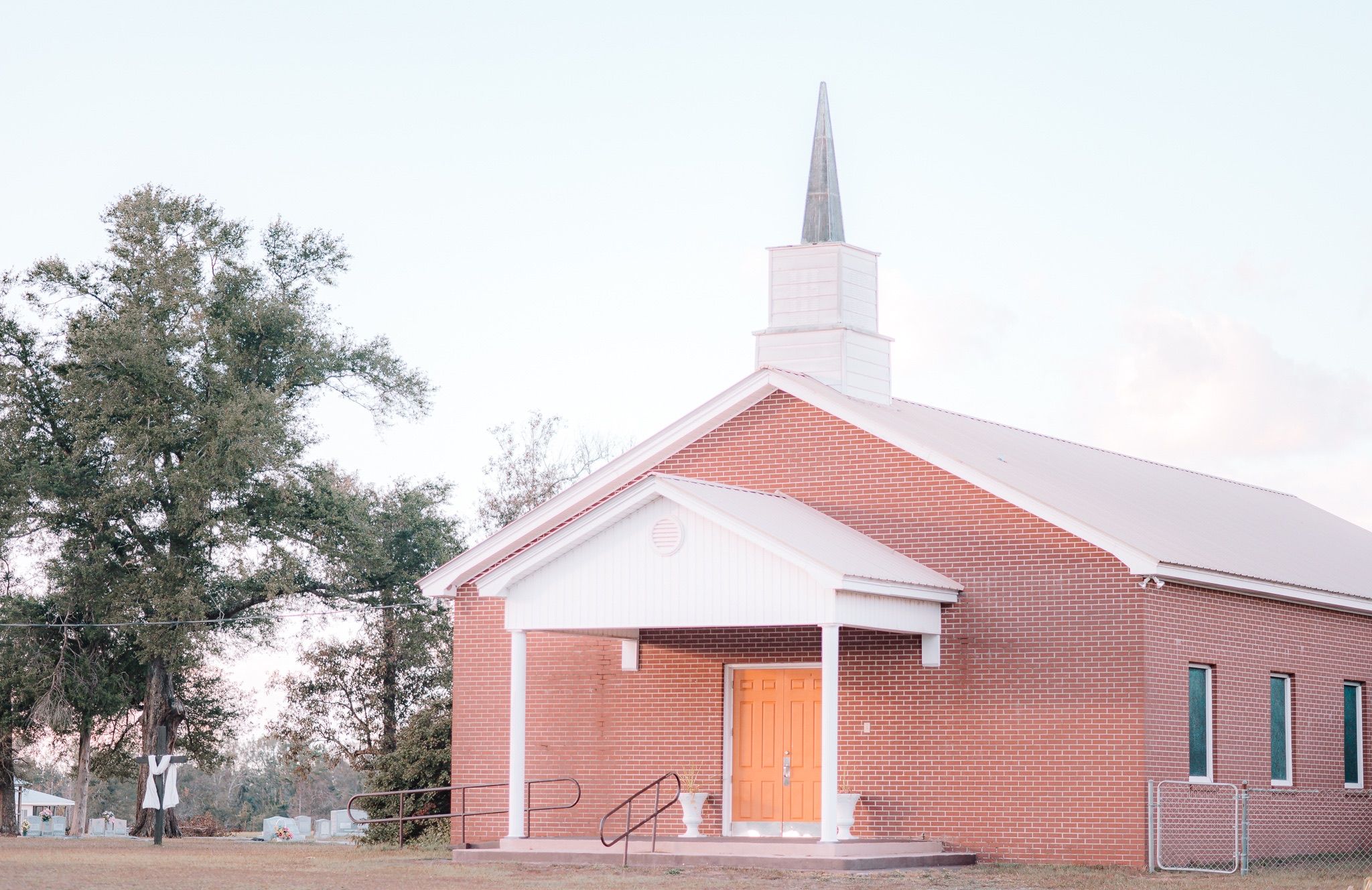Doing Better Discipleship
Doing Better Discipleship
Last week, I attended a Missions Conference representing our Association at a nearby Bible College. I had a great time talking to students about ways they could get involved in our churches. Out of the many conversations I had, one stuck out in particular. A young male student was volunteering with the student ministry at his church.
“So,” he said, “I know discipleship is important. But at our church, I don’t think we are doing anything to make disciples. We do Sunday School, a church service, and then go home. We’re missing out on something, but I don’t know where to start because I don’t think I’ve ever been discipled.”
The concern of this young man is undoubtedly echoed among many churches. We know that the Great Commission Jesus gave to the church was to go and make disciples of all nations, and we know Jesus told us to teach people to obey all things he commanded, but many churches simply do not produce mature followers of Jesus Christ.
Most pastors, replanters, and revitalizers know we must focus intently on disciple-making in our churches. But so few know where to start. In this week’s podcast episode, Jimbo and Bob discussed creating a discipleship pathway. Give it a listen, and you’ll hear many things I’ll echo in this blog.
Before discussing some “must do”s of discipleship, let’s discuss some “don’t”s.
Don’t Confuse What Discipleship Is
The scriptures tell us that gathering together as a church body is vital. We should not neglect the assembly of the saints; we need to worship, pray, and study God’s word together. However, too many church leaders have seen the gathering of the saints as a replacement for intentional discipleship. Sure, we grow in our faith when we attend church and Sunday School or Bible Studies. But is church attendance alone the way Jesus taught us to disciple others?
 Let’s look at the definition of discipleship. We can’t get this wrong. We need to look at the master disciple-maker, Jesus. We need to see how Jesus made disciples. If we look at his model, we’ll understand what he meant when he told his disciples to go and do the same. While many definitions exist, I love this one one by Robby Gallaty. “Disciplemaking is intentionally equipping believers with the word of God through accountable relationships empowered by the Holy Spirit to replicate faithful followers of Jesus Christ.”
Let’s look at the definition of discipleship. We can’t get this wrong. We need to look at the master disciple-maker, Jesus. We need to see how Jesus made disciples. If we look at his model, we’ll understand what he meant when he told his disciples to go and do the same. While many definitions exist, I love this one one by Robby Gallaty. “Disciplemaking is intentionally equipping believers with the word of God through accountable relationships empowered by the Holy Spirit to replicate faithful followers of Jesus Christ.”
When we look at the life of Jesus, we see this vividly. Jesus called out 12 followers and equipped them with everything they would need to live for him. He built intentional relationships with them, even having many side conversations with them one-on-one and through their larger group. Jesus gave the disciples the promise of the Holy Spirit that empowered them to live for Him. And the goal that Jesus gave them was not to create converts. It was to make disciples (which, of course, includes conversion).
The model of discipleship is Jesus. The essence of discipleship is the gospel. The power of discipleship is through the Holy Spirit. And the goal of discipleship is the multiplication of more disciples.
Don’t Pass Off Discipleship As “Another Program”
Discipleship is not another program. Discipleship is the mission that Jesus gave. Discipleship is not something else we just add to our busy plates. Discipleship is the underlayment behind which all other ministries should build. If you’re in line at a buffet restaurant, piling foods on your plate, discipleship isn’t food on the menu; it’s the plate. And everything else must be built upon it.
I grew up attending “Discipleship Training” on Sunday evenings—Discipleship Training at five, evening worship at 6. Discipleship Training, to my recollection, was simply Sunday School in the evening. While I always learned something, I’m not sure if this transfer of information took deep root in my spiritual growth. Having an hour delegated for discipleship at your church is good and helpful. But while that one-hour extra Bible study was good, was it God’s best for our maturity? It’s what takes place in that hour that’s important. And if you’re doing intentional discipleship correctly, you may find that it takes more than one hour a week! You may find it takes place more organically, outside the church, and with fewer people!
We have too many “hours,” programs, events, and ministries that compete for our time. Which ones are digging roots down in our spiritual maturity?
Don’t Lose Structure, But Don’t Be Too Rigid
Jesus had a method when discipling his group of men. He intentionally called them out, took them to specific locations, spoke to certain people, and did particular ministry, all to model for them what it truly looked like to follow him. The goal was the production of the disciples’ maturity and faithfulness. We see Jesus often pull Peter, James, and John aside to develop them as leaders, looking forward to the coming days after Pentecost. Jesus had a structure: if he could make disciples out of these men, they would, in turn, be equipped to go out and make disciples when he left.
But the type of discipleship we see from Jesus was also organic. We don’t see Jesus laying out a 10-step program or a 12-week Bible study on the Torah. Jesus’ discipleship happened in the natural flow of everyday life. We see Jesus often stopping to teach the disciples about their prideful remarks or correcting their misunderstandings about the kingdom of God when they raised questions. Jesus was flexible with his disciples, often pointing to things they saw and came across, such as a fig tree or overlooking the temple in Jerusalem. He used every moment as a teachable moment towards discipleship. He used stories and parables to teach them profound spiritual truths. Jesus wasn’t so rigid that he lost sight of the natural purpose.
But now that we’ve looked at a few “Don’t”s of discipleship, let’s look at a few “Do”s.
Do: Preach Towards and Prioritize Discipleship
I want this to be as simple and practical as I can. God uses the preaching of His word to challenge, convict, encourage, and train church members toward living for Jesus Christ. If you want to emphasize discipleship in your church, it must first come from the pulpit. Help church members understand the differences between attending a program and investing in people’s lives. The only way you prioritize discipleship is if both you and your leaders around you talk about it, celebrate it, challenge it, and encourage it. That starts with you.
If you need resources to get started toward preaching on discipleship, I will list a few of my favorites at the bottom of this page. But my favorite resource for preaching discipleship is a 1977 book called The Equipping of Disciples by Hendrix and Householder. But there are many I’ll list at the bottom of this blog that you can use, as well as some mentioned in the podcast episode.
Do: Create a Simple, Intentional Method for Discipleship in Your Church
You don’t have to re-create the wheel, friend. A few simple searches through trusted resources can take you to proven ways to spur intentional discipleship in your church. But everyone that I’ve found focuses on these instructions. I’ll write it in South Georgia language:
Pick Some Folks:
Don’t pick too many people that you can’t be intentional with the ones you have. Pray through who to select in your first group, and focus on people you want to develop as leaders who can lead groups themselves. Second Timothy 2:1-2 says, “You then, my child, be strengthened by the grace that is in Christ Jesus, and what you have heard from me in the presence of many witnesses entrust to faithful men, who will be able to teach others also.” Choose four, maybe five at a max, people at a time, and spend at least a year discipling them. Yes, I know Jesus picked 12 people. But you’re not Jesus, and He spent three years with them. And we often see him even more intentional with an inner circle. Make sure they are the same gender because discipleship includes time for intentional accountability that may be sensitive.
Read the Bible:
The Bible is your curriculum. Many ask, “What book or study should I use to disciple someone?” Use the Bible. Either through a Bible Reading Plan or through Bible Books at a time. The Bible says, “All Scripture is breathed out by God and profitable for teaching, for reproof, for correction, and for training in righteousness, that the man of God may be complete, equipped for every good work.” If you’re bent on using a study or workbook, make sure it is profoundly biblical! If we genuinely believe that the Bible is the word of God, our material must be the Bible.
Teach ‘Em
Disciples must learn how to process, talk through, and understand how to live for Christ. So, Disciple-makers must teach them how to process, talk through, and understand how to live for Christ. Why? Because Jesus told us how to disciple someone: “…teach them to observe all that I have commanded.” Teach them…to observe (obey)… everything that He commanded.
 We do this at my church through a weekly discussion of God’s word. In our Bible reading plan, we read five days a week and journal all five days. When we meet, we discuss what God taught us through reading and studying His word. That is my time to teach, correct, and train during the discussion. Most discipleship resources will tell you to include scripture memory verses in your discipleship. I highly encourage it. Not only are they reading scripture, but they are soaking it in and dwelling on it.
We do this at my church through a weekly discussion of God’s word. In our Bible reading plan, we read five days a week and journal all five days. When we meet, we discuss what God taught us through reading and studying His word. That is my time to teach, correct, and train during the discussion. Most discipleship resources will tell you to include scripture memory verses in your discipleship. I highly encourage it. Not only are they reading scripture, but they are soaking it in and dwelling on it.
Hold ‘Em Accountable
Discipleship is a time to get involved with one another’s lives, ask about sin, and discuss how you will apply your learning. This is not another class but an investment into someone’s life. If you’re going to plant and properly care for your tomatoes, you don’t go out and start telling your tomatoes how to stay on the trellis. You get your hands dirty and plant that seed and care for that plant. Know who they are, ask about their lives, get to know their families, and hold them accountable to their commitments. Returning to the Great Commission, Jesus does not say, “Teach them to understand everything I’ve commanded.” He says, “Teach them to obey.”
Pray With ‘Em and For ‘Em
While prayer is also a part of learning to be a disciple, it must also be practiced in your group time. Before doing anything related to someone’s spiritual growth, we should pray. Prayer cannot be neglected and cannot be diminished. Make sure you spend plenty of time each week praying over your group and having your group pray for one another. Get involved in their lives. Discipleship is sometimes messy, and that’s okay. Remember, this isn’t a church program; it’s the church’s mission. And it is profoundly relational at its core.
Do: Understand the End of Discipleship
Is Discipleship ever finished? No. It’s an ongoing process. We will all be pupils of our Lord and Savior, Jesus Christ, until he comes to take us home. Groups come and go, but your group members should not be released when you feel they are “finished” being discipled because they’d never be released. A good rubric for when someone should be released from a group is when they’re ready to start discipling someone else. And that takes a significant amount of time. It takes months, maybe a couple of years, not a couple of weeks.
There are a few men at my church I started discipling two years ago. When we finished meeting for a year, some left my group, and others joined, but the ones who stayed needed more time to lead a group. But now that the end of the year is coming up, they’ve both had plenty of time in a discipleship group, where they can now lead a group themselves. Not because they’re super-Christians but because they are simply able to teach. I’ll quote 2 Timothy again: “What you have heard from me in the presence of many witnesses entrust to faithful men, who will be able to teach others also.” What qualifies someone else to disciple others? Ask two questions (according to that Bible verse): are they faithful to Jesus? Are they able to teach others?
So much more can be said, but this can get you started for now. Please don’t hesitate to reach out to our team for more questions. Here is a list of my favorite resources on discipleship:
The Lost Art Of Disciplemaking















